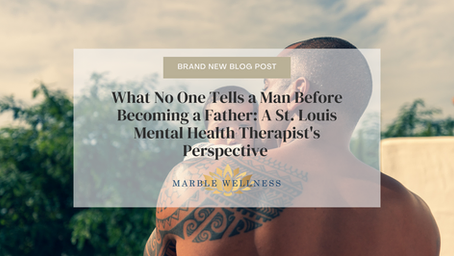Coping with grief is one of life’s most profound challenges. Whether you’ve lost a loved one, experienced a breakup, or faced another significant loss, grief can feel overwhelming and isolating. Yet, healing is possible–and it often comes in waves. As one compassionate perspective reminds us:
“Grief comes in waves–sometimes small, sometimes crushing-but every wave eventually passes. Allow yourself to feel without judgment, lean on people who make you feel safe, and remind yourself that healing isn’t linear. You won’t always feel this way!”
This post offers unique and practical advice to help you navigate grief with kindness and resilience.
Understanding Grief: The Wave Metaphor
Grief is not a one-time event but a process that ebbs and flows. On some days the pain may feel manageable, while on others it can feel unbearable. This wave-like nature is normal and expected. Instead of fighting these waves, allow yourself to experience them fully without judgment. Recognize that healing doesn’t follow a straight path-there will be setbacks and breakthroughs, and both are part of your journey.
Strategies for Coping with Grief
1. Acknowledge Your Grief as a Reflection of Love
The first step is to honor your grief as a natural response to loss. It’s not a weakness or something to suppress. Your feelings–whether sadness, anger, confusion, or numbness–are proof of the deep connection you had. Giving yourself permission to feel these emotions is essential for healing.
2. Build a “Safe Harbor” Support System
Grief can make you want to withdraw, but isolation often intensifies the pain. Surround yourself with people who provide safety and understanding. This might be close family, trusted friends, or a grief support group. Sharing memories or simply being in the presence of caring people can be profoundly comforting. If you’re unsure where to start, consider joining a local or online grief support group to connect with others who truly understand.
3. Create Personalized Rituals of Remembrance
Rituals help keep your loved one’s memory alive and provide a tangible way to express grief. This could be lighting a candle daily, planting a tree in their honor, creating a scrapbook, or visiting a special place. These acts offer moments of connection and peace amidst the pain.
4. Embrace Journaling as a Healing Tool
Writing can be a powerful way to process grief. Try writing letters to your loved one, journaling about your feelings, or recording positive memories you shared. This practice externalizes your emotions, making them easier to understand and manage. It also provides a private space for your grief without fear of judgment.
5. Establish Gentle Routines to Anchor Your Days
Grief disrupts normal life rhythms, which can increase feelings of chaos. Creating simple daily routines-like consistent meal times, morning meditation, or a short walk-can provide structure and a sense of control. These small anchors help stabilize your mood and remind you that life continues, even when it feels fragile.
6. Practice Mindfulness and Grounding Techniques
Mindfulness helps you stay present and manage overwhelming emotions. Techniques like deep breathing, guided meditation, or simply focusing on your senses can calm your mind during intense waves of grief. These practices don’t erase pain but help you sit with it more peacefully.
7. Allow Yourself to Feel Without Judgment
Grief brings a wide range of emotions, from sorrow to anger to moments of unexpected joy. It’s important not to judge yourself for how you feel. There is no “right” way to grieve. You might cry one day and laugh the next–and that’s okay. Accepting your feelings as they come fosters self-compassion and eases the burden of grief.
8. Seek Professional Support When Needed
Sometimes grief can feel too heavy to bear alone. Therapists trained in grief counseling provide a safe space to explore your emotions and develop coping strategies. Therapy can be especially helpful if grief leads to depression or complicated grief, where pain feels stuck or unbearable. Remember, seeking help is a sign of strength, not weakness.
9. Engage in Meaningful Activities and Acts of Service
Volunteering or engaging in hobbies that bring you joy can restore a sense of purpose and connection. Helping others or pursuing creative outlets offers a healthy distraction and reminds you that life still holds meaning beyond loss.
10. Take Care of Your Physical Health
Grief affects the body as well as the mind. Prioritize sleep, nutrition, and gentle exercise to support your overall well-being. Avoid using substances like alcohol to numb pain, as these can prolong suffering and interfere with healing.
Special Considerations: Sudden vs. Anticipated Loss
Grief can differ depending on whether the loss was sudden or expected. Sudden loss often brings shock, numbness, and intense confusion, while anticipated loss may involve prolonged sadness and anticipatory grief. Both require compassion and tailored coping strategies, such as allowing yourself to experience the shock of sudden loss or preparing emotionally for anticipated loss. Therapy can help navigate these differences and find your path to peace.
Healing Is Possible
Remember the comforting truth: “You won’t always feel this way.” Grief is a journey with ups and downs, but with time, support, and self-compassion, healing unfolds. Lean on those who make you feel safe, allow your emotions to flow without judgment, and know that every wave of grief eventually passes. You are not alone, and brighter days are ahead.
Begin Grief Therapy for Life Transitions in the St. Louis Area
If you or someone you love is struggling with grief, consider reaching out to a grief therapist at Marble Wellness in St. Louis. We provide compassionate support tailored to your unique experience. Healing is possible, and you deserve care that honors your journey. Not only do we have a team of therapists in Ballwin, MO, but we have also recently expanded to serve the Lake St. Louis and Wentzville area! Reach out to our Client Care Coordinator today to discuss your therapy options, both in-person and via online therapy in Missouri.
Contact Us!
Learn About Our Group Offerings

Additional Counseling Services at Marble Wellness in St. Louis, MO
Marble Wellness Counseling services are designed to help set you on a path of living a more fulfilled, calm, and happy life. Our St. Louis area therapists have a variety of training backgrounds and areas of expertise. We specialize in anxiety, depression, grief, chronic illness, therapy for men, couples, and maternal overwhelm. Our practice also helps new moms with various postpartum concerns, moms in the thick of parenting, and moms with teens. We can also chat from wherever you are in the state with online therapy in Missouri. No matter where you are in your journey, we are here to help you thrive!



